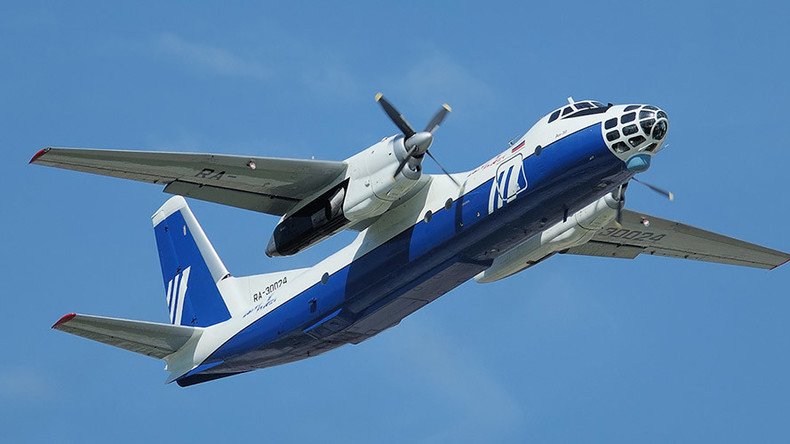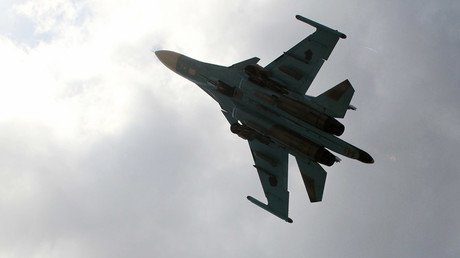‘Dangerous precedent’: Turkey denies Russian observation flight along Syrian border

Turkey has set “a dangerous precedent” by denying an observation flight over its territories bordering Syria, the Russian Defense Ministry said, vowing a “relevant reaction” to Ankara’s violation of its obligations under the international Open Skies Treaty.
The Treaty on Open Skies which came into force in 2002 allows unarmed aerial observation flights over the territories of its 34 signatories, which includes Turkey. However the Russian An-30B plane was banned from conducting its surveillance flight over Turkish territory which was scheduled for February 1-5, without any prior warning.
“After the arrival of the Russian mission to Turkey and the announcement of the desired itinerary, the Turkish military officials refused to allow the inspection flight citing an order from the Turkish Foreign Ministry,” the head of the ministry’s National Nuclear Risk Reduction Center, Sergey Ryzhkov, said in a statement.
Chief of Directorate for treaty monitoring Sergei #Ryzhkov claimed that Turkish party violated Treaty on #OpenSkieshttps://t.co/esHUYfHT2Q
— Минобороны России (@mod_russia) February 3, 2016
This is the first time that Turkey has refused a Russian observation flight over its territory. Since 2006 under the Treaty on Open Skies, Russia conducted approximately two observation flights a year. Turkey has flown over Russian airspace approximately four times a year.
But as tensions between Turkey and Russia intensified following the downing of the Russian jet in November, Ankara has refused the implementation of the treaty.
“The itinerary included the observation of areas adjacent to the Turkish border with Syria, as well as airfields that host NATO warplanes,” Ryzhkov pointed out. A previous statement, issued on February 1, specified that a Russian oversight flight would be conducted along an agreed route. Furthermore, Turkish monitors on board would have the opportunity to control the use of surveillance equipment.
Tensions deteriorated further last week, when neither Ankara nor its NATO allies offered any proof after accusing Russia’s Su-34 bomber of violating Turkish airspace. Moscow sees the latest development as a violation of the treaty and has warned that “relevant action” will occur in response.
“As a result of violations of the requirements of the Treaty and unconstructive actions on the part of Turkey, a dangerous precedent was created of an uncontrolled military activity of an Open Skies Treaty member state,” Ryzhkov said. “We are not going to leave without proper attention and relevant reaction violations of the Open Skies Treaty on the part of the Turkish Republic.”
Konstantin Kosachev, the head of the upper house’s international affairs committee, said that the Turkish violation of the treaty further complicates Russian-Turkish relations.
“This is unfortunate and does not contribute to the exit from this crisis, in which Russian-Turkish relations are currently in. This is a clear violation of Turkey's international obligations under the Treaty on Open Skies,” he told TASS.
In a separate development the Russian Ministry of Defense announced Tuesday that another group of Russian inspectors would visit Turkish army ranges and get briefed by the Turkish military command, as part of the framework of the 2011 Vienna document aimed at building confidence and security.













